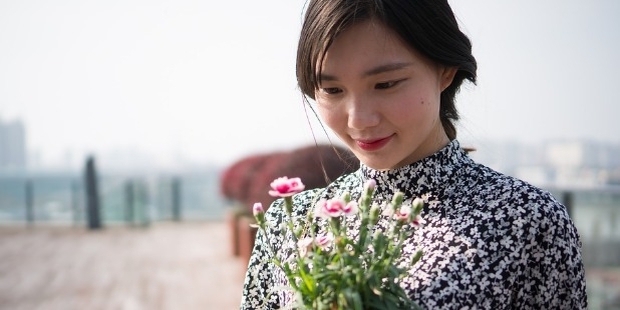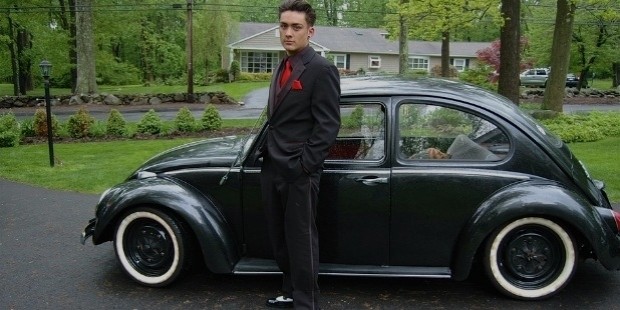Two Necessary Conditions For Happiness

1. Expectations and Living Beyond Survival Mode

There are certain core needs that need to be met before we can focus on things that will make us happy. Being in the survival mode doesn’t allow us to pursue happiness. Imagine yourself being thrown into the woods to live only with the clothes on your back. You’d spend all your time looking for food, water, and trying to build a shelter. You’d probably ask yourself “how satisfied am I?” Well, definitely much less than if you were in your air conditioned home with a refrigerator full of food.
As Abraham Maslow explains, “People must fill their physiological and security needs, for safety, sustenance, and warmth, before they can take care of their social and esteem needs”.
So as you learn to avoid starving and freezing in the woods, you may then start thinking about your life expectations. We simply can’t be happy if we’re chronically hungry, in danger, or isolated. We have to meet our bi-physiological needs to be happy. When those needs are met, we’re in a better position to evaluate our lives. But upon reaching certain thresholds in development, further economic growth brings minimal returns in both life expectancy and subjective well-being. When societies develop to a point where people can focus on more than merely surviving, money starts to matter less and less. People start to worry about how well and long they’ll live. These personal shifts come from a change in value. When we stop placing physical security and economic interests first, we start to value things like self-expression and activities that emphasize participation, freedom of expression, and quality of life.
Once we make this shift from economic to personal growth, we would yield even higher returns in quality of life by valuing more leisure time, comfortable living spaces and fulfilling jobs, rather than just pursuing economic growth. This is easier said than done. Once we’ve seen our neighbor’s new car or an in-laws new home, we tend to revert to seeking these things for ourselves.
2. Having the Freedom to Choose, but Not Being Paralyzed by It

Do you think you’d be happy without the ability to choose? Most of us would say no, but research on choice has found some interesting and contradictory data. Studies show that economic development, democracy, and rising social tolerance influence people’s perceptions of their ability to choose freely, leading to higher levels of happiness around the world.
People who believe they are more in control of their choices and not fate often appreciate the freedom to choose more than those who think that destiny is the determining factor of the outcome of life. These people approach events in their lives differently as well. Those depending on their ability to choose are more proactive in seeking their desired results. Those depending on luck are more ready to pass the ball or sit back and see what happens.
We’re happier feeling like we have the freedom to choose. It’s not only having more choices that makes us happier, but the ability to feel in control of the choices available as well. Even the declaration of independence seems to acknowledge these rights of “life, liberty, and the pursuit of happiness. The freedom to choose and control our own lives is closely related to happiness.
1. Choices, Choices

Choice isn’t always positive. When we make choices we have a goal of either satisfying a need or maximizing every possible angle to find the best possible choice. Satisfying a need is hard enough, but maximizing each and every angle can be paralyzing. When someone has too many options at hand, he/she may make the wrong choice.
Think about all the variety one encounters when purchasing a car. If you walk into a car lot selling every make and model, you will feel at a loss. If you were able to get more information, your standards would increase and then if you did happen to choose the wrong car you’d feel like it’s your fault. This pressure can make the experience overwhelming. Have you gone shopping for a big purchase recently and felt it somewhat draining? If you only had to choose between two or three cars, it would much easier to decide which car to buy.
That’s not to say maximizers don’t get better results. They may find the car with all the options and at a better price, but they’ll still wonder if they made the best decision and feel exhausted from their search.
Researchers say “From breakfast cereals to automobiles to colleges to careers, it makes sense for people to expect more when the options are more plentiful than when they are scarce.
We can also experience anxiety from the unfamiliar.
2. Cultural Subtleties Related to Choice

Happiness is a Choice You Make
The importance of choice is not universal. Westerners tend to value the freedom to choose as essential to raising children that grow up capable of making their own choices. Individual choice is thought of as the gold standard in the western world, and is accredited with increasing motivation, happiness and longevity. In contrast, Asians tend to make decisions based on group values, harmony, and trends.
If we live in a world with abundant choice, we tend to think everyone else is in the same boat. We can fall into the trap of thinking people are personally responsible for their circumstances. We should be cautious here as this lessens the sense of connection and empathy for people that don’t have the same opportunities for choice as we do.









